Related Research Articles

Czechoslovakia was a landlocked state in Central Europe, created in 1918, when it declared its independence from Austria-Hungary. In 1938, after the Munich Agreement, the Sudetenland became part of Nazi Germany, while the country lost further territories to Hungary and Poland. Between 1939 and 1945, the state ceased to exist, as Slovakia proclaimed its independence and the remaining territories in the east became part of Hungary, while in the remainder of the Czech Lands, the German Protectorate of Bohemia and Moravia was proclaimed. In 1939, after the outbreak of World War II, former Czechoslovak President Edvard Beneš formed a government-in-exile and sought recognition from the Allies.
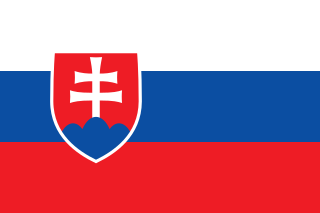
Slovakia, officially the Slovak Republic, is a landlocked country in Central Europe. It is bordered by Poland to the north, Ukraine to the east, Hungary to the south, Austria to the west, and the Czech Republic to the northwest. Slovakia's mostly mountainous territory spans about 49,000 square kilometres (19,000 sq mi), with a population of over 5.4 million. The capital and largest city is Bratislava, while the second largest city is Košice.
Slovak is a West Slavic language of the Czech–Slovak group, written in Latin script. It is part of the Indo-European language family, and is one of the Slavic languages, which are part of the larger Balto-Slavic branch. Spoken by approximately 5 million people as a native language, primarily ethnic Slovaks, it serves as the official language of Slovakia and one of the 24 official languages of the European Union.
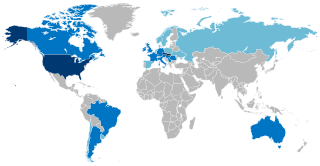
The Slovaks are a West Slavic ethnic group and nation native to Slovakia who share a common ancestry, culture, history and speak Slovak.

Direction – Social Democracy stylized as DIRECTION – Slovak Social Democracy, also commonly referred to as Smer, is a social democratic, left-wing nationalist and left-wing populist political party in Slovakia led by the former prime minister Robert Fico.

The Christian Democratic Movement is a Christian-democratic political party in Slovakia that is a member of the European People's Party (EPP) and an observer of the Centrist Democrat International.

The National Council of the Slovak Republic, abbreviated to NR SR, is the national parliament of Slovakia. It is unicameral and consists of 150 members, who are elected by universal suffrage under proportional representation with seats distributed via Hagenbach-Bischoff quota every four years.
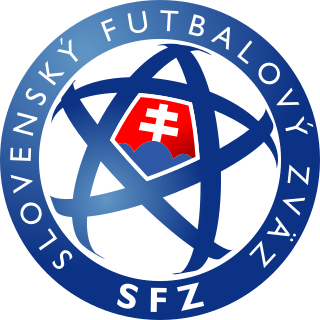
The Slovakia national football team represents Slovakia in men's international football competition and it is governed by the Slovak Football Association (SFZ), the governing body for football in Slovakia. Slovakia's home stadium from 2019 is the reconstructed Tehelné pole in Bratislava. Slovakia is one of the newest national football teams in the world, having split from the Czechoslovakia national team after the dissolution of the unified state in 1993. Slovakia maintains its own national side that competes in all major tournaments since.

The Slovak Football Association is the governing body of football in Slovakia. It has the ultimate responsibility for the control and development of football in Slovakia and is the body that runs the Slovakia national football and futsal teams.

The prime minister of Slovakia, officially the Chairman of the government of the Slovak Republic, commonly referred to in Slovakia as Predseda vlády or informally as Premiér, is the head of the government of the Slovak Republic. Officially, the officeholder is the third-highest constitutional official in Slovakia after the President of the Republic (appointer) and Chairman of the National Council; in practice, the appointee is the country's leading political figure.
The dissolution of Czechoslovakia, which took effect on December 31, 1992, was the self-determined split of the federal republic of Czechoslovakia into the independent countries of the Czech Republic and Slovakia. Both mirrored the Czech Socialist Republic and the Slovak Socialist Republic, which had been created in 1969 as the constituent states of the Czechoslovak Socialist Republic until the end of 1989.
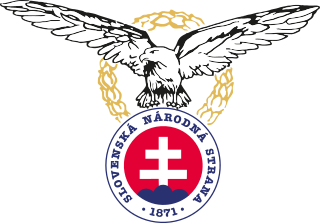
The Slovak National Party is an ultranationalist political party in Slovakia. The party characterizes itself as a nationalist party based on both social and European Christian values.

ŠK Slovan Bratislava is a professional football club based in Bratislava, Slovakia, that plays in the Slovak Super Liga. Founded as I. ČSŠK Bratislava in 1919, the club changed its name to Slovan Bratislava in 1953. Slovan is the most successful team in Slovakia with the most titles in both league and cup in the country.
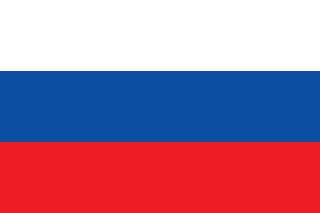
The (First) Slovak Republic, otherwise known as the Slovak State, was a partially-recognized client state of Nazi Germany which existed between 14 March 1939 and 4 April 1945 after abandoning Czechoslovakia to be annexed by Germany. The Slovak part of Czechoslovakia declared independence with German support one day before the German occupation of Bohemia and Moravia. The Slovak Republic controlled the majority of the territory of present-day Slovakia but without its current southern parts, which were ceded by Czechoslovakia to Hungary in 1938. It was the first time in history that Slovakia had been a formally independent state.

Bratislava, historically known as Preßburg (Pressburg), is the capital and largest city of Slovakia. Officially, the population of the city is about 475,000; however, it is estimated to be more than 660,000—approximately 140% of the official figures. Bratislava is in southwestern Slovakia at the foot of the Little Carpathians, occupying both banks of the River Danube and the left bank of the River Morava. Bordering Austria and Hungary, it is the only national capital to border two sovereign states.

Freedom and Solidarity is a liberal political party in Slovakia. Established in 2009, SaS is led by its founder and economist Richard Sulík, who designed Slovakia's flat tax system. It generally holds libertarian or anti-statist positions. After the 2020 Slovak parliamentary election, the party lost several seats in the National Council but became part of the coalition government with Ordinary People and Independent Personalities, For the People and We Are Family.
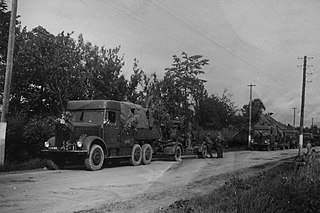
The Slovak National Uprising was a military uprising organized by the Slovak resistance movement during World War II in central Slovakia. This resistance movement was represented mainly by members of the Democratic Party, social democrats, and communists. It was launched on 29 August 1944 from Banská Bystrica in an attempt to resist German troops that had occupied Slovak territory and to overthrow the collaborationist government of Jozef Tiso. Although the resistance was largely defeated by German forces, guerrilla operations continued until the Red Army, Czechoslovak Army and Romanian Army occupied the Slovak Republic in 1945.

People's Party Our Slovakia is a far-right neo-Nazi political party in Slovakia. The party claims to derive its origin from the legacy of Andrej Hlinka and Jozef Tiso.

Progressive Slovakia is a liberal and social-liberal political party in Slovakia established in 2017. The party is led by Vice President of the European Parliament Michal Šimečka. It is a member of the Renew Europe group and is a full member of the Alliance of Liberals and Democrats for Europe Party. PS has three MEPs: Michal Šimečka, Martin Hojsík, and Michal Wiezik ; Wiezik left the EPP group and Spolu to join PS. Zuzana Čaputová, incumbent President of Slovakia, co-founder and former deputy leader of Progressive Slovakia, was nominated by the party in the 2019 Slovak presidential election, and won by standing for the anti-corruption, environmental and pro-European program. In the National Council, it is represented by deputy Tomáš Valášek elected for For the People, which he left in 2021. In local politics, PS has a dominant position in Bratislava, cooperating with Team Bratislava and Freedom and Solidarity.

Zuzana Čaputová is a Slovak politician, lawyer and environmental activist. She is the fifth president of Slovakia, a position she has held since 15 June 2019. Čaputová is the first woman to hold the presidency, as well as the youngest president in the history of Slovakia, elected at the age of 45.